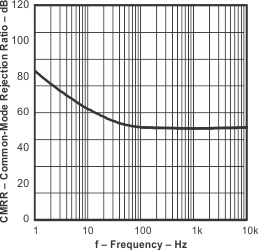JAJSI21 October 2019 TLV6003
PRODUCTION DATA.
6.6 Typical Characteristics
at TA = 25°C and VCC = 5 V (unless otherwise noted)

| VCC = 5 V |

| VCC = 2.7 V |

| VCC = 15 V |

| VCC = 5.0 V |









| AV = 1 |

| AV = 1 |

| VCC = 2.7 V |

| VCC = 15 V |

| VCC = 5.0 V |

| VCC = 2.7 V |

| VCC = 15.0 V |









| AV = –1 |

| AV = –1 |